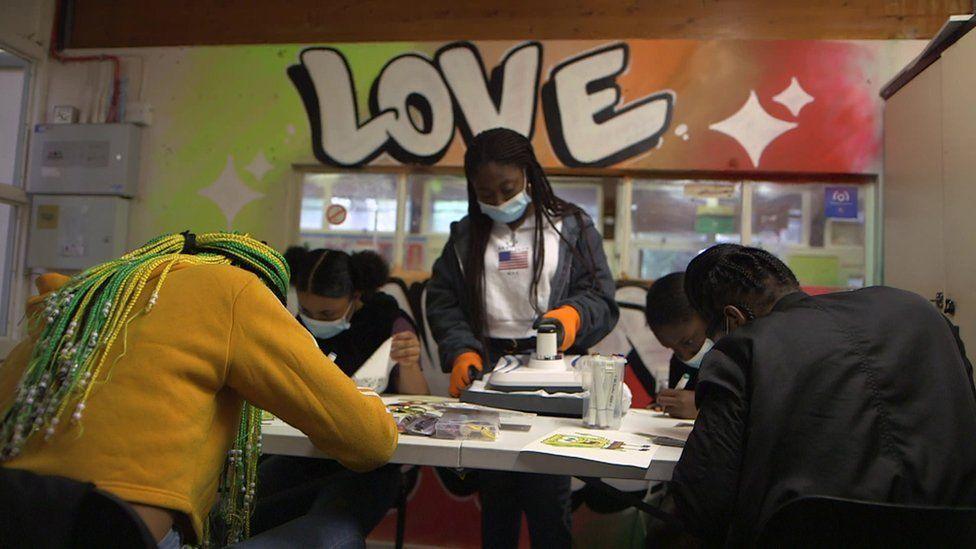After-school patrols reassure pupils walking home
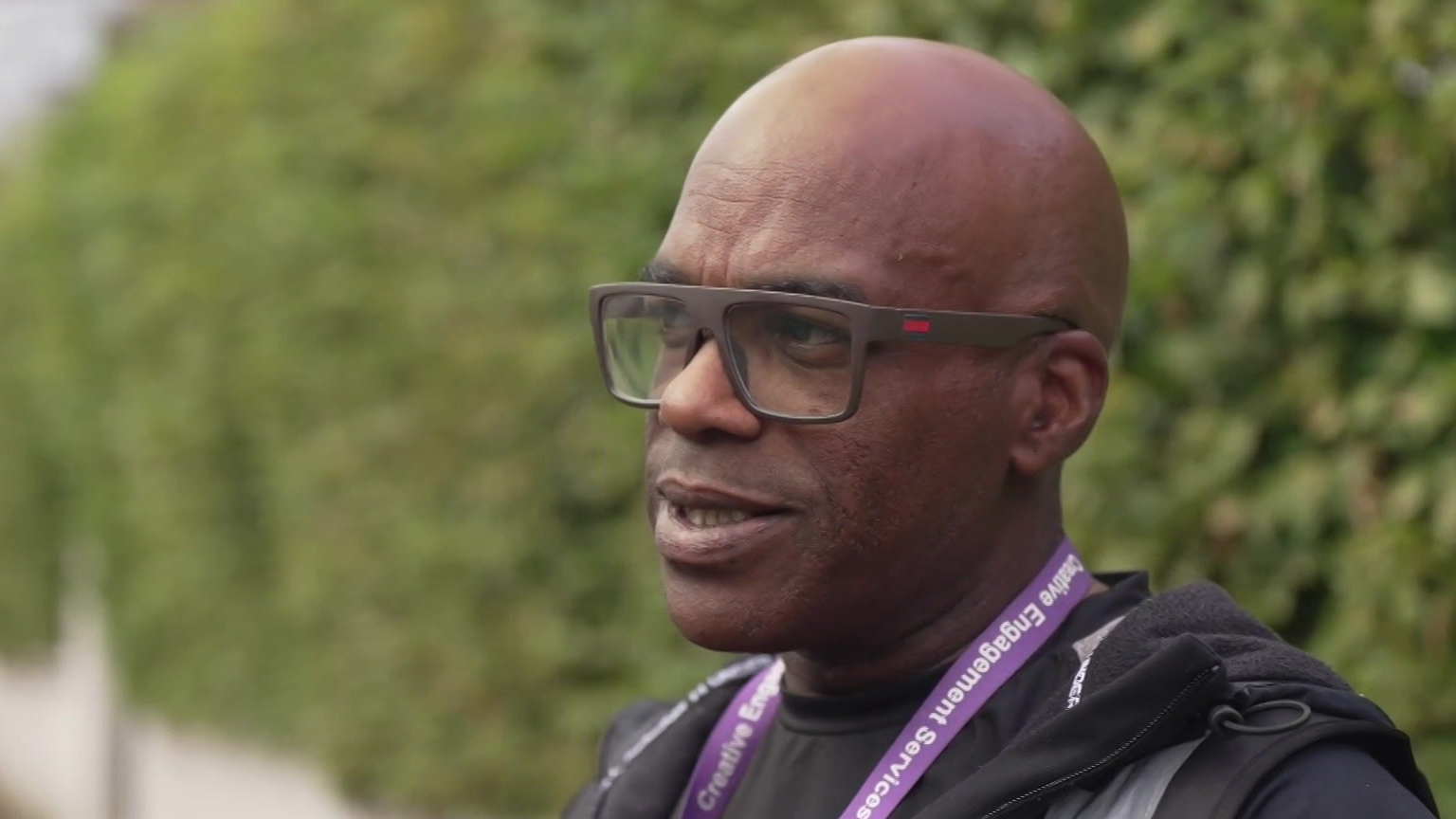
Wayne George is one of the youth workers patrolling the streets as part of the pilot scheme
- Published
A scheme to keep children safe on their way home from school by putting specialist youth workers on the streets has been trialled by an east London council.
Adults experienced in conflict management and de-escalation patrolled from Monday to Friday on three routes in Chingford, Walthamstow and Leyton.
The scheme was funded by the mayor's violence reduction unit, and started in January after young people said trusted adults in the community would make them feel safer.
The teams were on duty between 15:00 and 18:00 until the scheme was paused for the summer holidays.
Mobile phone theft
One 15-year-old boy from Waltham Forest said he found the youth workers were a reassuring presence.
"Inevitably stuff is going to happen between children. It could be because they pronounce their words differently or it could be something more serious.
"By having trusted adults around areas such as the market, where most schoolchildren come together, makes it safer for everyone."
He also said he found the Safer Routes team "less intimidating" than the police.
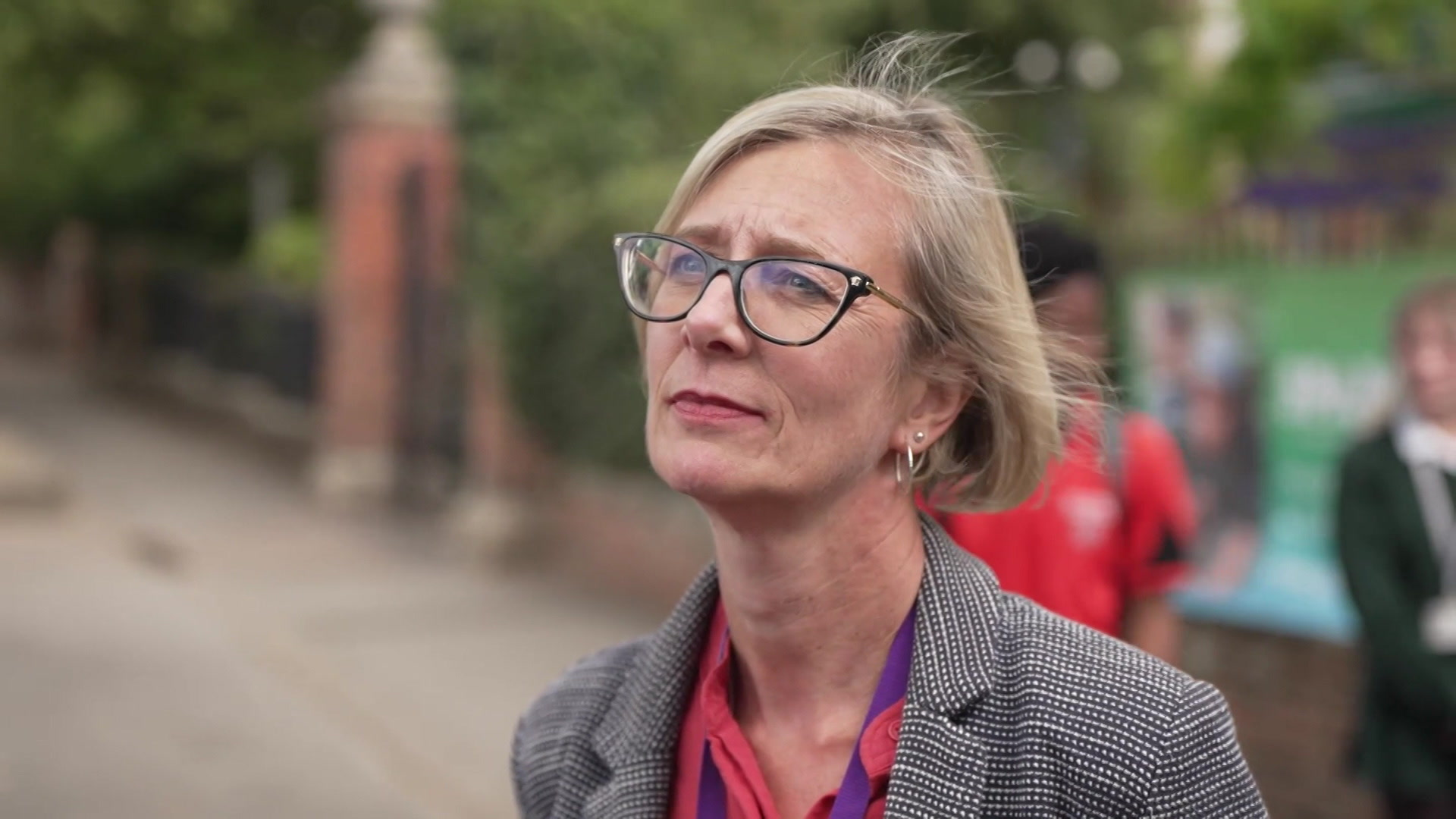
Helen Marriott, head teacher at Walthamstow School for Girls, said school staff received real-time updates from the youth workers
Wayne George, from community interest group Creative Engagement Services, is one of those involved.
He said a lot of his work was related to mobile phone theft, so he runs workshops on how to be safe with phones.
According to a Waltham Forest Council survey, 43% of residents said crime was one of their top concerns.
Data provided by the council also suggested young people were most vulnerable on school days during the two-hour period after the school day finished.
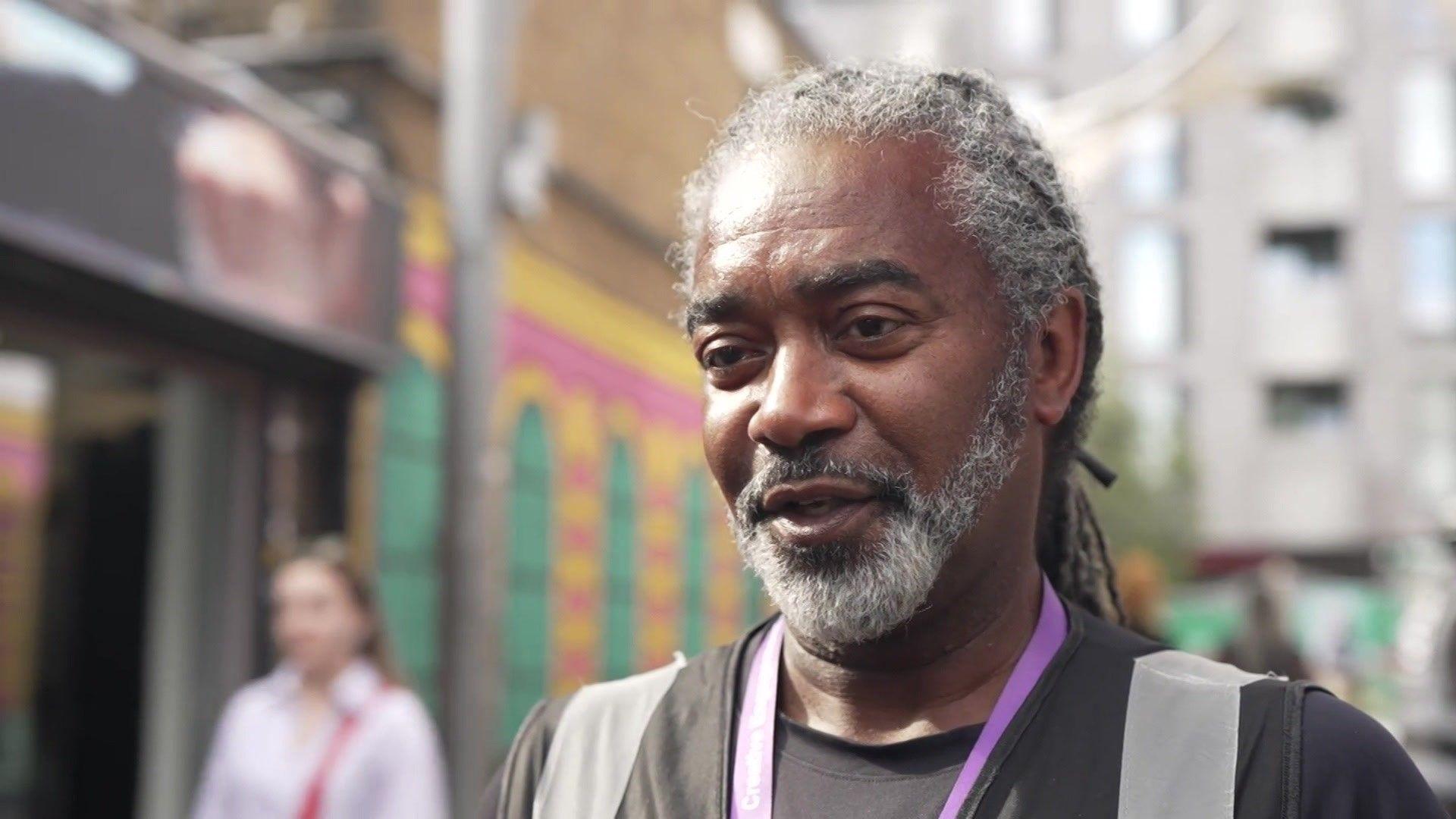
Youth worker Barrington Todd said they were also positive role models for young people
Barrington Todd has been a youth worker for more than 20 years.
He said knowing how to find common ground was important: "Once we have pulled two people apart or a group of people we say 'look, it's us, you know us'.
"We say police are not the ogres, we are not the ogres, we are just friendly people who care about young people."
He added that youth workers hoped to be positive role models within the community and to remind children of their own expectations of themselves and their values.
'Put interventions in place'
The team on the ground were also able to share real-time updates with the community safety team and professionals including school staff.
Helen Marriott, head teacher at Walthamstow School for Girls, said: "They are able to communicate with us, let us know if there are any incidents, any young people at risk, and then we're able to act on that and put interventions in place when they come back into school."
Risks children could encounter after school included drug dealers, criminal gangs and harassment and violence against women and girls.
Mr Todd said a special summer programme of activity would take place during the school holidays in order to engage with young people.
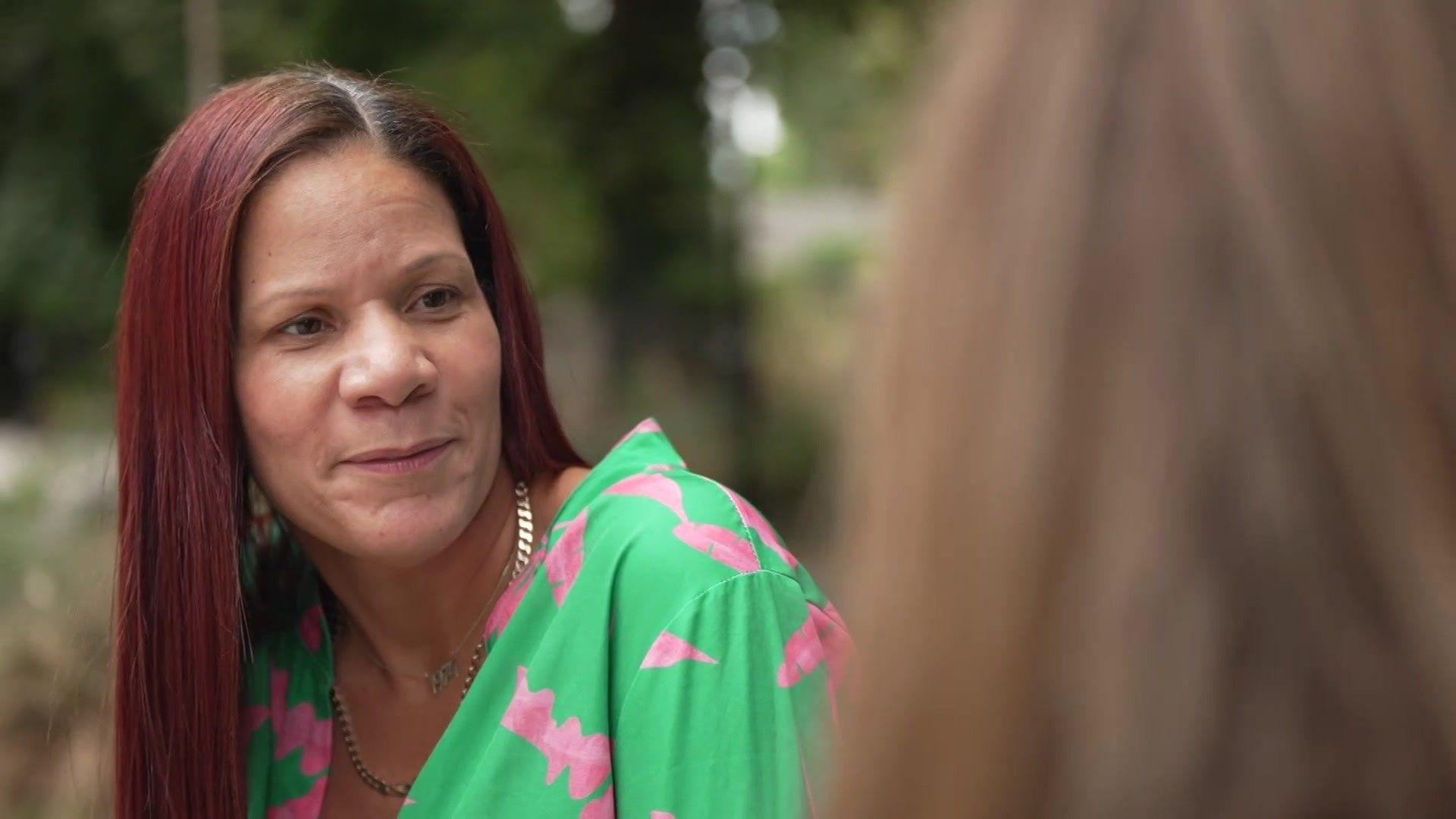
Candy Cridland said the scheme made her daughter feel safer
One mother, Candy Cridland, said the scheme offered her some reassurance because it made her daughter feel safer.
She said her daughter, who has a disability, gets incredibly anxious and worries about being picked on by bigger children.
Ms Cridland said her daughter had befriended one of the female adults - something that provides reassurance for both Ms Cridland and her daughter.
Waltham Forest Council said it was taking quarterly feedback from young people to discuss the routes.
It will evaluate the pilot after two years and if it is effective, will be looking at ways to keep it.
Listen to the best of BBC Radio London on Sounds and follow BBC London on Facebook, external, X, external and Instagram, external. Send your story ideas to hello.bbclondon@bbc.co.uk, external
Related topics
- Published10 May
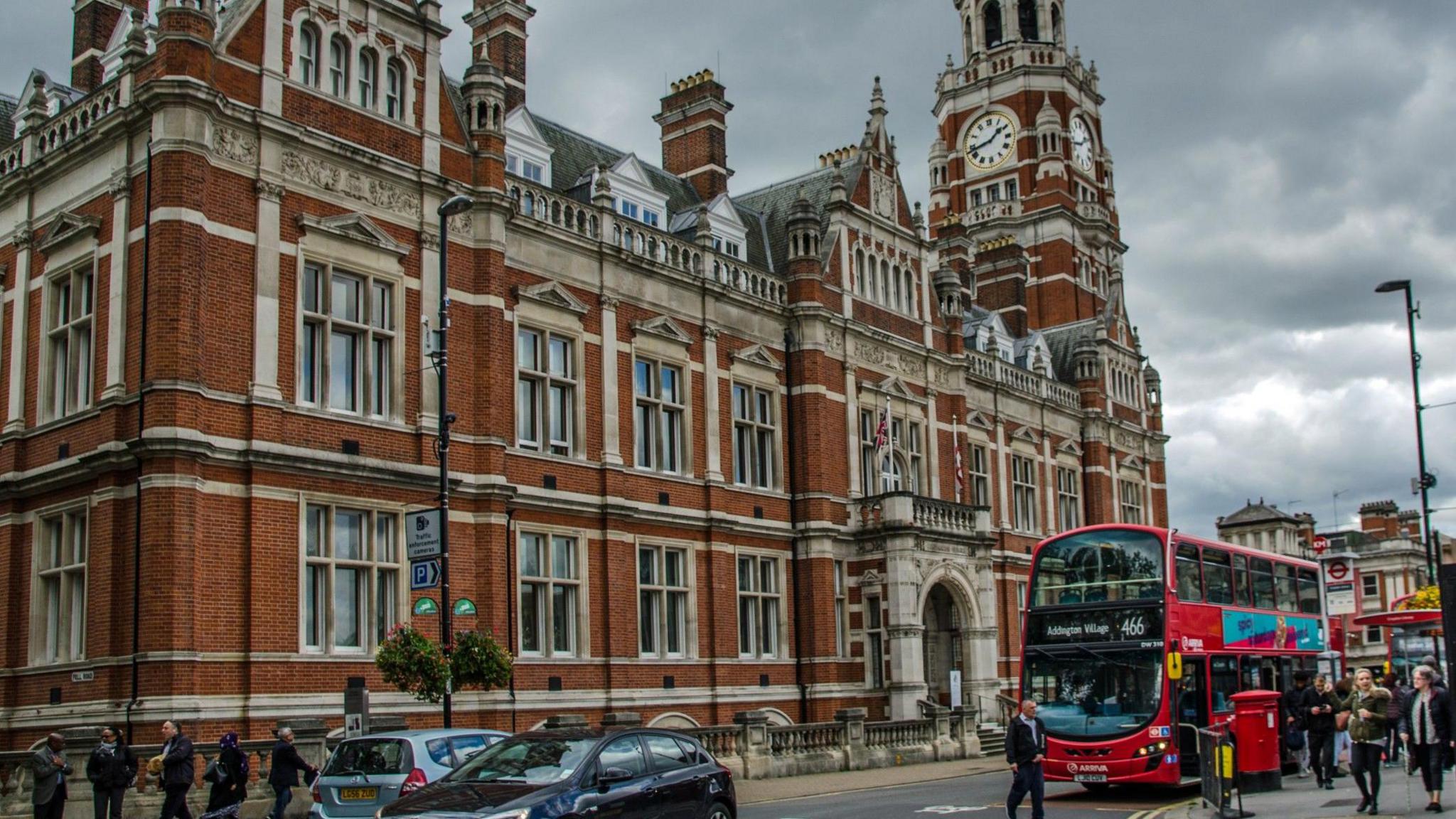
- Published13 November 2024
